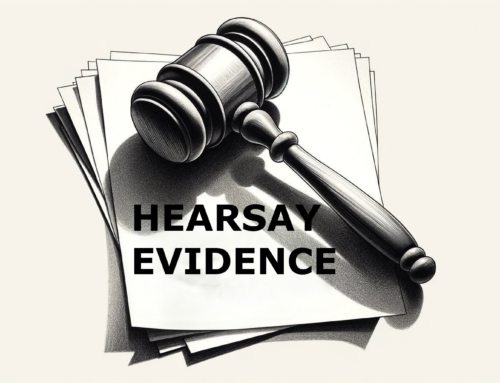When facing criminal charges, the last thing you want is for someone else’s words to be used against you in court. Unfortunately, this is precisely what can happen when hearsay evidence is introduced. So, what exactly is hearsay, and why should you care?
What is Hearsay?
In legal terms, hearsay is any out-of-court statement that is offered to prove the truth of the matter asserted. This means that someone else’s words, not the actual witness or speaker, are being used as evidence in court. For example, if a police officer testifies that someone told them you committed a crime, that testimony is hearsay.
What is the Problem with Hearsay?
Why is hearsay evidence problematic? The main issue with hearsay is that it lacks the reliability and credibility of firsthand testimony. The person who made the original statement is not in court to be cross-examined, and the statement has not been subjected to the rigorous testing of the court process. As a result, hearsay evidence can be easily fabricated or exaggerated, and it can be difficult to determine the accuracy of the statement.
Is Hearsay Admissible as Evidence?
Despite these concerns, hearsay evidence is still admissible in court under certain circumstances. For example, hearsay can be admitted if it falls under an exception, such as an excited utterance, a statement made in response to an emergency, or a dying declaration.
If you are facing criminal charges, working with an experienced criminal defense attorney who understands the rules of evidence and can help you challenge hearsay evidence that may be introduced against you is important. Your attorney can also help you understand the exceptions to the hearsay rule and advise you on the best strategy for your case. You need an experienced criminal defense attorney to protect your rights. Remember, the accuracy and credibility of the evidence used against you can make all the difference in the outcome of your case.





